NCI Early Drug Development (Speaker Bios)
 Jibran Ahmed, M.D.
Jibran Ahmed, M.D.
Assistant Research Physician, National Cancer Institute/National Institutes of HealthDr. Jibran Ahmed is an Assistant Research Physician at the Developmental Therapeutics Clinic (DTC) of the National Cancer Institute (NCI), National Institutes of Health (NIH). He specializes in early-phase clinical research and serves as a principal investigator for Phase I/II cancer clinical trials. Dr. Ahmed completed a fellowship in Investigational Cancer Therapeutics at The University of Texas MD Anderson Cancer Center and previously served as an Assistant Professor of Medical Oncology at the University of Arkansas for Medical Sciences, focusing on gastrointestinal cancers. He is board certified in Internal Medicine, Hematology, and Medical Oncology. His research interests include cancer immunotherapy, early-phase drug development, and biomarker-based evaluation of novel therapies.
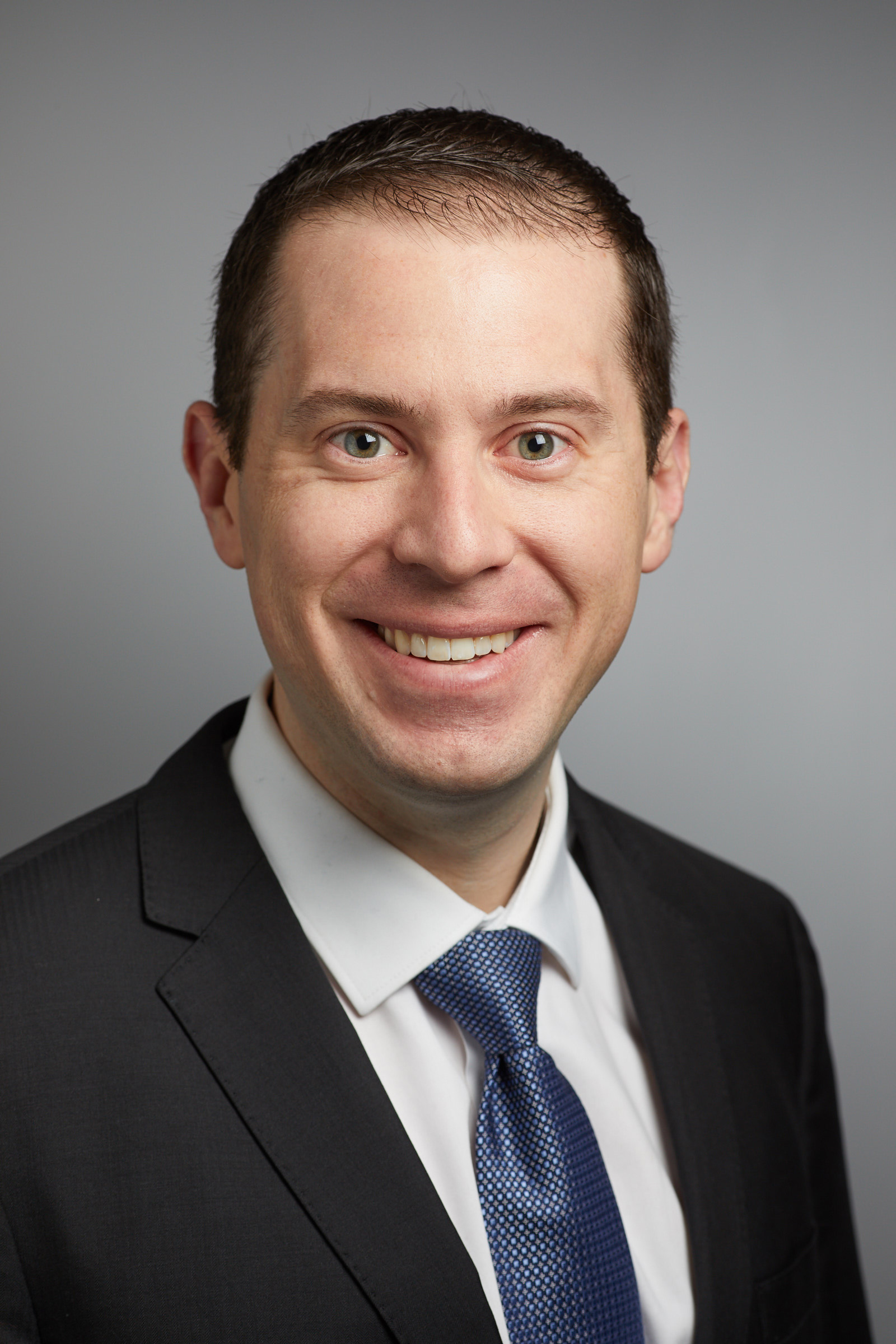 Michael Cecchini, MD
Michael Cecchini, MD
Associate Professor of Medicine, Yale Cancer CenterDr. Michael Cecchini is an Associate Professor of Medicine (Medical Oncology) at the Yale Cancer Center at Yale University School of Medicine. He is a board-certified medical oncologist specializing in treatment for patients with advanced gastrointestinal (GI) cancers with an emphasis on colorectal cancer. His research is focused on early phase clinical trials developing novel therapies that are biomarker driven for patients with advanced GI cancers. Furthermore, he performs translational research to understand the relationship between DNA damage and the immune response to develop new biomarkers and treatment combinations for patients with advanced GI cancers. Dr. Cecchini is also co-director of the Colorectal Cancer Program and GI Oncology Clinical Research at Yale and is a member of the National Cancer Institute Colon Task Force. Dr. Cecchini has served as an investigator on numerous clinical trials and has authored multiple manuscripts evaluating novel treatment combinations in advanced GI cancers.
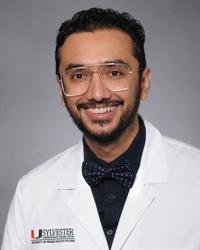 Aman Chauhan, M.D.
Aman Chauhan, M.D.
Associate Professor of Medical Oncology, University of MiamiDr Chauhan is a medical oncologist and leads the University of Miami Neuroendocrine Cancer Program and Co-Directs Sylvester Theranostics Drug Development Program. He is national principal investigator on several NCI sponsored investigator initiated neuroendocrine cancer clinical trials. He has authored over 90 scientific publications and book chapters and has received career development award from NCI CTEP. Dr Chauhan also serves on AJCC and ASCO NET guideline committees and is Co-Chair of SWOG NET and NANETS communication committee.
Dr. Chauhan is board certified in internal medicine and medical oncology. He is a member of the American Society of Clinical Oncology as well as the American Association of Cancer Research and the North American Neuroendocrine Tumor Society.
 Helen Chen, M.D.
Helen Chen, M.D.
Associate Branch Chief, IDB, National Cancer InstituteDr. Helen Chen joined the Cancer Therapy Evaluation Program (CTEP) of National Cancer Institute (NCI) in 2000. She currently serves as Associate Chief of the Investigational Drug Branch (IDB) Section III, which focuses on the clinical development of antibody-based therapeutics, active immunotherapies, MAPK and RTK inhibitors as well as antiangiogenic agents. She has also been closely involved in NCI’s efforts on novel agent combinations and is member of the NCI Experimental Therapeutics Committee.
Dr. Chen graduated from the Shanghai First Medical College of the Fudan University in China. She is board-certified in Medical Oncology after completing the Fellowship Training at Georgetown University Medical Center, Washington D.C. Dr. Chen also serves on external scientific committees including the International Symposium of Anti-angiogenic Therapies and Immunotherapy and the FDA-ASCO-AACR-sponsored Accelerating Anticancer Agent Development and Validation Workshop. She has presented at national and international meetings on strategies of combining novel and targeted agents, early drug development as well as antibody-based therapeutics and antiangiogenic therapies. She is the first or coauthor of over 50 original and review papers in peer-reviewed journals including Journal of Clinical Oncology, Nature Reviews, and New England Journal of Medicine.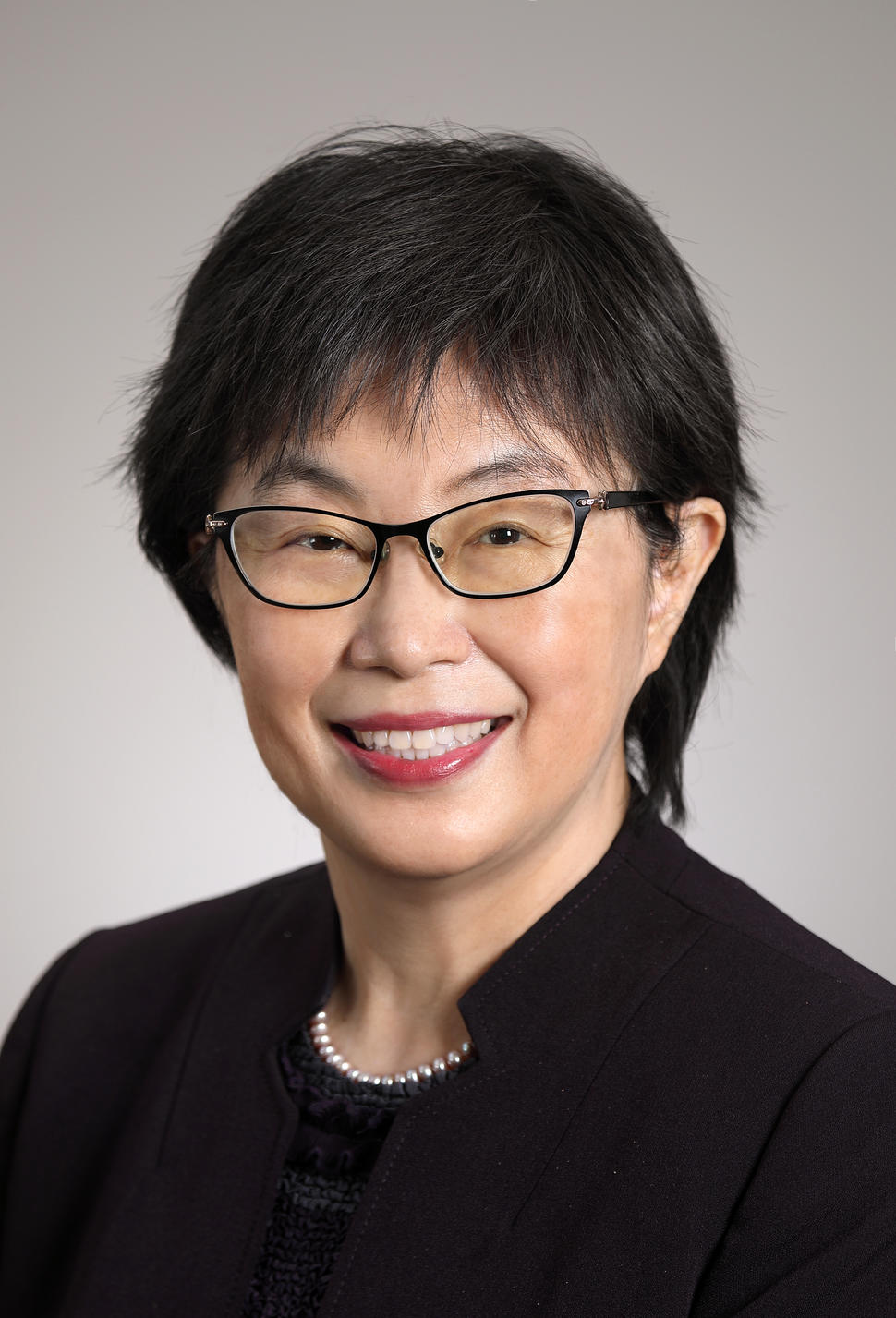
Dr. Chen directs the Developmental Therapeutics Clinic (DTC) at the National Cancer Institute since 2014. Within the DTC, NCI facilitates the discovery and development of new anticancer drugs and drug targets agents on a national and international basis. She works closely with her statisticians at the Biometric Research Program to develop novel clinical trial designs that best fit the agent in development. She led a trial of atezolizumab in Alveolar Soft Part Sarcoma that had led to approval of atezolizumab in this histology and first approval for pediatrics and reported in the NEJM. She is also one of the PI for the NCI MATCH and ComboMATCH, both are national precision medicine trials. She led and presented a trial of selumetinib in NF1 adult patients with plexiform neurofibromatosis at ASCO this year with simultaneous publication in Lancet. She has authored over 180 manuscripts and made presentations by invitation to major oncology meetings internationally on early phase clinical trials, precision medicine, and rare tumor.
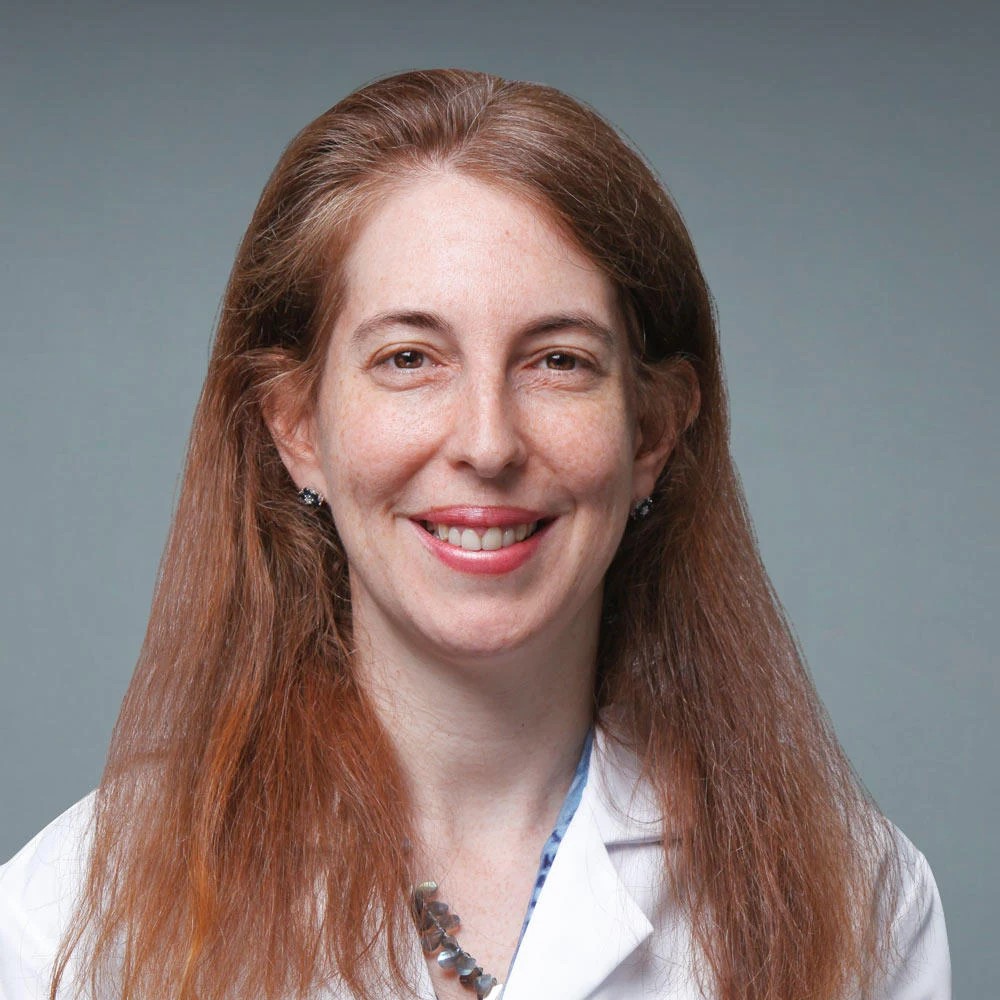 Catherine Diefenbach, MD
Catherine Diefenbach, MD
Associate Professor of Medicine , Perlmutter Cancer Center at NYU Langone Health
Catherine.diefenbach@nyulangone.orgI am an Associate Professor in the Division of Hematology and Medical Oncology in the NYU Perlmutter Cancer Center (PCC) at NYU Langone Health, the Clinical Director of Lymphoma and the Translational Director of Hematology. My translational research focuses on the relationship between systemic immunity, tumor microenvironment, and lymphoid malignancies. I lead a multi-center investigation into the role of the microbiome in aggressive lymphoma and collaborate in team science with basic scientists in the development of novel immune based therapies, and biomarkers of lymphoma response. I have been among the pioneers of integration of checkpoint inhibitor therapy into the management of relapsed Hodgkin lymphoma (HL) developing and leading a national ETCTN supported clinical trial in this space, which was the first clinical trial to explore this approach. I have also played a key role in the development of novel immune related biomarkers in HL , which may lead to more personalized therapy, and serve on national committees leading efforts to improve the next generation of HL therapies. I have contributed to the development of antibody drug conjugates (ADC) and bispecific antibodies in lymphoma and led national and international studies focusing on relapsed FL and DLBCL. I have led multiple investigations within the NCI framework and have twice been awarded the NCI CTEP Career Development CDA: once for the HL trial E4412 and the second for a novel early phase trial in R/R DLBCL and HL which is currently ongoing. I have also been awarded the NIH/NCI Cancer Clinical Investigator Team Leader Award. I have successfully obtained external peer-reviewed funding for my clinical and translational research from: the Lymphoma Research Foundation, the American Cancer Society, the Leukemia Lymphoma Foundation (LLS) and the National Cancer institute (NCI),
 Steven Gore, M.D.
Steven Gore, M.D.
Branch Chief, IDB, National Cancer InstituteSteven Gore, MD, earned his undergraduate and doctoral degrees at Yale, performed his residency at the University of Chicago and his oncology fellowship at Johns Hopkins. He rose from instructor to full professor at Johns Hopkins, and, in 2013, he became professor of medicine and director of hematologic malignancies at Yale. He joined the Investigational Drug Branch at CTEP in 2020.
Dr. Gore is an internationally recognized expert in drug development in leukemia. His research career focused on the development of drugs with epigenetic targets for the treatment of myeloid disease, and he has played a major role in the incorporation of epigenetic modifiers in the treatment of myeloid malignancies. Among his many other accomplishments, Dr. Gore served on the NCI Leukemia Steering Committee beginning in 2015 and served as co-chair from 2017 until he joined CTEP. Dr. Gore is author or co-author of over 200 scholarly publications including primary research papers, book chapters, books, reviews, and practice guidelines.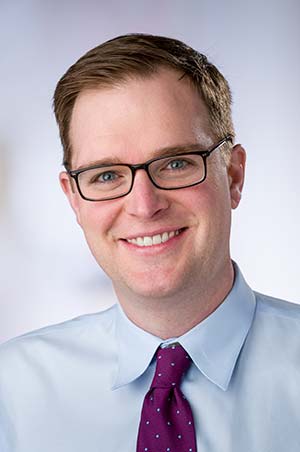 Evan Hall, M.D., M.Phil.
Evan Hall, M.D., M.Phil.
Associate Professor, University of Washington/Fred Hutch Cancer Center
ehall2@fredhutch.orgDr. Hall is a medical oncologist at University of Washington/Fred Hutch Cancer Center in Seattle, Washington. He specializes in treating skin cancers (including melanoma) and kidney cancer. He is an active clinical researcher, mainly leading trials of developmental immunotherapies and intratumoral approaches. He is also interested in measurement and characterization of patient quality of life, particularly as related to side effects and toxicities from novel cancer treatments such as immunotherapy and targeted therapies.
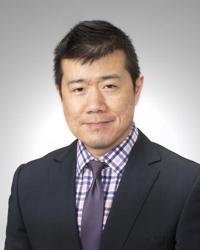 Dennis Hsu, M.D.
Dennis Hsu, M.D.
Assistant Professor of Medicine, University of Pittsburgh Medical CenterDennis Hsu, MD, is a medical oncologist and physician-scientist at UPMC Hillman Cancer Center. Board-certified in internal medicine and medical oncology, Dr. Hsu specializes in caring for people with gastrointestinal cancers. His areas of clinical expertise include colorectal cancer, appendix cancer, small bowel cancer, pancreas cancer, biliary tract, and anal cancer. Dr. Hsu graduated with a degree in engineering physics from the University of California, Berkeley and received his medical degree from Cleveland Clinic Lerner College of Medicine. As a medical student, he spent an additional year at the National Institutes of Health in Bethesda, Md. where he studied cell-signaling in colon cancer. Dr. Hsu completed his internal medicine residency at the University of Michigan, Ann Arbor, and subsequently his medical oncology fellowship at Memorial Sloan Kettering Cancer Center in New York City.
Dr. Hsu believes that cancer care should be driven by science and evidence-based medicine, and that his job is to deliver the highest possible level of care in a way that takes into consideration each patient’s personal values and preferences. He provides inpatient and outpatient care at UPMC Shadyside and UPMC Hillman’s Shadyside location, in addition to his research responsibilities. Dr. Hsu’s research interests explore how cancer cells survive under harsh environments, more recently focusing on how nutritional limitations affect cancer behavior. A major objective of Dr. Hsu’s research is to bring observations in the lab forward to advance cancer treatments. Thus far, Dr. Hsu’s research career has been supported by a Young Investigator Award from ASCO as well as from the Damon Runyon Cancer Research Foundation. Dr. Hsu also collaborates with fellow scientists in UPMC Hillman’s Cancer Biology and Cancer Therapeutics Programs.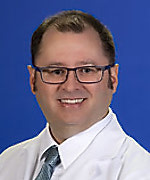 Brian A. Jonas, M.D., Ph.D.
Brian A. Jonas, M.D., Ph.D.
Professor of Medicine, University of California Davis School of MedicineDr. Jonas specializes in acute myeloid leukemia, myelodysplastic syndromes (MDS), acute lymphoblastic leukemia, myeloproliferative neoplasms (MPN), MDS/MPN overlap syndromes, CML, other myeloid malignancies. Dr. Jonas directs the acute leukemia and MDS research efforts at UCDCCC. He has built a thematic clinical and translational research program in AML, MDS and ALL with an emphasis on early drug development and biomarker development and with a goal of having a clinical trial to offer each patient. He is also Chair of the UCDCCC Hematologic Malignancies Disease Team and is Chair of the UCDCCC Data and Safety Monitoring Committee.
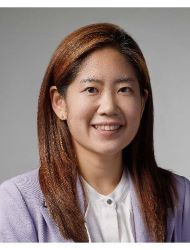 So Yeon Kim, MD
So Yeon Kim, MD
Phase Ib/II Study of ZEN003694 and Entinostat in Advanced and Refractory Solid Tumors and Lymphomas, YaleSo Yeon Kim, MD, is an Assistant Professor of Medicine at Yale School of Medicine and a medical oncologist in the Developmental Therapeutics and Thoracic Oncology Programs at Yale Cancer Center. Her research focuses on the development of novel cancer therapies through early-phase clinical trials, particularly for patients with advanced lung cancers and other solid tumors. Dr. Kim is dedicated to advancing the understanding of mechanisms of cancer metastases to immune-privileged sites and identifying biomarkers of response to cancer-directed therapies.
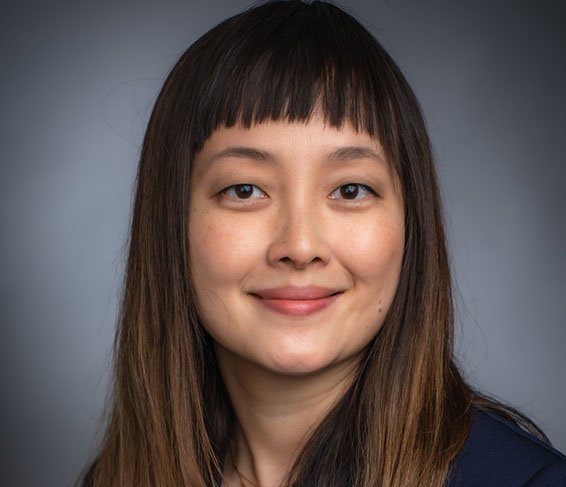 Jia Luo, M.D.
Jia Luo, M.D.
Medical Oncologist, Thoracic Oncology Program, Dana-Farber Cancer InstituteJia Luo, MD, is a medical oncologist in the Thoracic Oncology Program at the Dana-Farber Cancer Institute in Boston.
Her research has focused on oncogene-driven lung cancers and developing tools to understand responses to immunotherapy. She has first and co-authored papers in journals such as Cancer Discovery, Annals of Oncology, Nature Reviews Clinical Oncology, Cell Reports and Clinical Cancer Research. She has received foundation and NIH grants for her research.
Dr. Luo grew up in Madison, WI. She received her BS from University of Wisconsin; MD from Stanford University School of Medicine; internal medicine residency, including a chief year, at Oregon Health & Science University; and medical oncology fellowship at Memorial Sloan Kettering Cancer Center in New York.
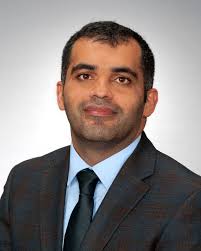 Haider S. Mahdi, M.D.
Haider S. Mahdi, M.D.
Assistant Professor, University of Pittsburgh Medical CenterDr. Mahdi is an assistant Professor, gynecological oncologist and physician scientist at Magee Women’s hospital and Magee Women’s Research Institute, University of Pittsburgh Medical Center. His research in ovarian cancer was recognized by awards such as V-Foundation Clinical Scholar award, GOG-F scholar award, and K12 Immuno-Oncology scholar award. He is a member of the Developmental Therapeutics, Ovarian Cancer, Translational Science and immunotherapy committees within NCTN/NRG.
Dr. Mahdi's research focus is on developmental therapeutics and translational genomic/immune-oncology research in gynecologic cancer specifically ovarian cancer. Cancer related research: 1. Tumor immune microenvironment in ovarian cancer focusing on tumor associated macrophages and TGF-B as well as strategies to enhance benefit of immunotherapy in ovarian cancer; 2. Her2 directed targeted therapy in combination approach targeting resistance mechanisms; 3. DNA-damage response targeted therapy based on ATR targeted therapy in combination approach to reverse PARPi resistance in ovarian cancer. Jyoti Malhotra, M.D., MPH
Jyoti Malhotra, M.D., MPH
Associate Professor, City of Hope Comprehensive Cancer Center
jymalhotra@coh.orgDr. Malhotra is an Associate Professor in the Department of Medical Oncology and Therapeutics Research at City of Hope Comprehensive Cancer Center. She is a thoracic medical oncologist and a member of the Developmental Therapeutics program. Dr. Malhotra’s expertise is in Experimental Therapeutics and she has led multiple phase I trials investigating novel agents and combinations for cancer therapy including first-in-human trials. Dr. Malhotra has a particular interest in novel approaches to combine immunotherapy with other agents for the treatment of lung cancer and refractory solid tumors. Dr. Malhotra has led multiple investigator-initiated clinical trials as well as a national trial sponsored by the National Cancer Institute- Cancer Therapy Evaluation Program (CTEP). She is also an active member of the SWOG cooperative group and serves on the NCCN panel for small cell lung cancer and IASLC Global Multidisciplinary Practice Standards Committee.
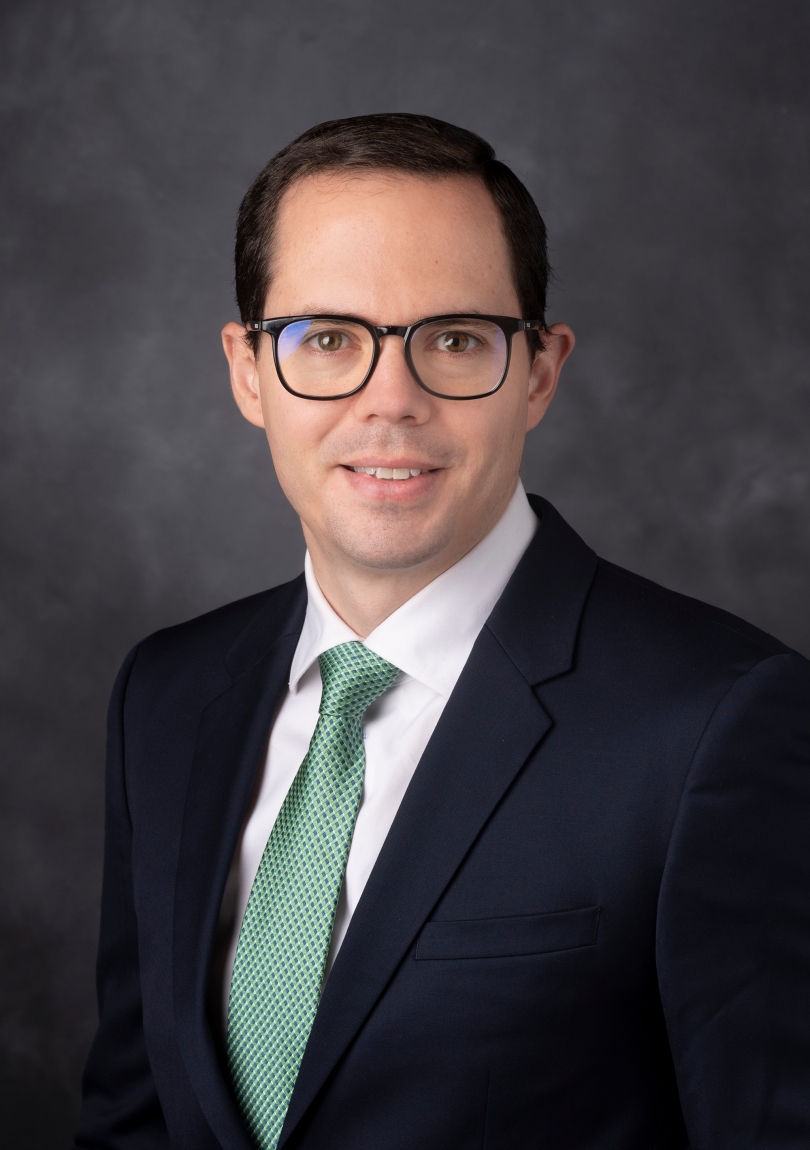 Salvador A. Martinez, M.D.
Salvador A. Martinez, M.D.
Assistant Professor, MD Anderson Cancer CenterDr. Salvador Alonso Martinez is an Assistant Professor in Gastrointestinal Medical Oncology at the MD Anderson Cancer Center, where his lab focuses on understanding and overcoming resistance to cytotoxic and targeted therapies in gastrointestinal cancers. He received his Doctor of Medicine from the Instituto Tecnológico de Monterrey before completing his Internal Medicine Residency at Massachusetts General Hospital. Following residency, Dr. Alonso Martinez pursued his medical oncology fellowship at Memorial Sloan Kettering Cancer Center and his postdoctoral training in the Dow Lab at Weill Cornell Medicine, where he honed his expertise in cellular and molecular biology to study mechanisms of therapy resistance. His laboratory work, supported by prestigious awards such as a K08 from the National Cancer Institute and a Career Award for Medical Scientists from the Burroughs Wellcome Fund, is dedicated to developing novel combinatorial treatment strategies to improve outcomes for patients with gastrointestinal malignancies.
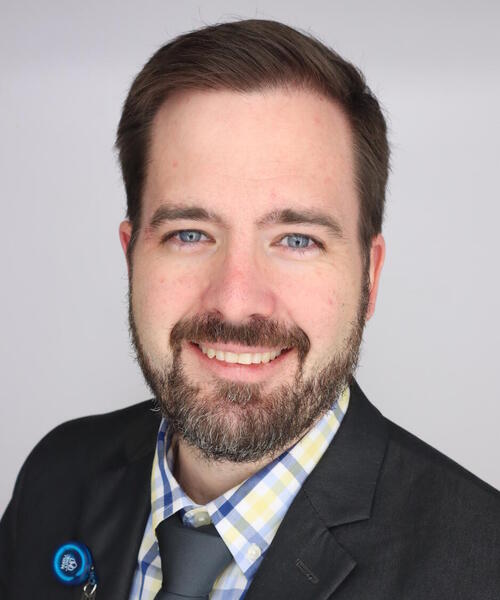 Jacob Orme, M.D., Ph.D.
Jacob Orme, M.D., Ph.D.
Assistant Professor of Medicine and Oncology, Mayo Clinic College of Medicine and ScienceDr. Jacob Orme is a medical oncologist at Mayo Clinic in Rochester, Minnesota. He completed MD and PhD degrees in medicine and immunology at the University of Texas Southwestern Medical Center. He completed residency, fellowship, and post-doctoral training at Mayo Clinic. As a clinician and physician investigator, Dr. Orme specializes in the care of patients with genitourinary cancers including prostate, bladder, and kidney cancer. He focuses on identifying and overcoming treatment resistance mechanisms in these cancers with a particular interest in immunotherapy resistance. Dr. Orme has discovered multiple resistance mechanisms and is leading multiple clinical trials to overcome them in patients with refractory cancers. He has been recognized with a Prostate Cancer Foundation Young Investigator Award and a Mayo Clinic Balfour Award for his work.
 Lorraine Pelosof, M.D., Ph.D.
Lorraine Pelosof, M.D., Ph.D.
Medical Officer, National Cancer InstituteLorraine Pelosof grew up in Dallas and graduated from The University of Texas at Austin. She completed her MD and her PhD in Molecular and Cell Biology at Washington University in St. Louis and then completed her Internal Medicine Residency at The University of Texas Southwestern Medical Center. Following residency, she completed her fellowship training in Medical Oncology at Johns Hopkins where her research focused on DNA promoter methylation in gastrointestinal tumors. After serving as an Assistant Professor in the Division of Hematology/Oncology at UT Southwestern, she moved back to Maryland where she was a Medical Officer on the GI oncology team in the Office of Oncologic Diseases at the U.S. Food and Drug Administration. After several years at the FDA, Lorraine recently joined the Investigational Drug Branch in CTEP.
 Cheryl Pickett-Gies, M.D., Ph.D.
Cheryl Pickett-Gies, M.D., Ph.D.
Medical Officer, National Cancer InstituteCheryl Pickett-Gies, MD, PhD, joined the Investigational Drug Branch and CTEP in 2020. Her current portfolio includes immune check point inhibitors and modulators, antibody drug conjugates, bispecific and other antibody based therapeutics. She is also director of the IDB/CTEP externship/ fellowship program. Dr. Pickett earned her PhD in biochemistry at the University of California (UC) Davis and her MD at the University of Colorado. She completed residency in Internal Medicine at UC Davis and a clinical and research fellowship in Endocrinology at the University of Colorado. She subsequently held academic appointments at the University of Colorado and the University of Washington Medical Centers before moving from academia to oncology clinical development positions in the biotech/pharma sector, first at Merck and later at Amgen. Dr. Pickett's early research focused on the mechanisms by which growth factors and hormones modulate activity of protein kinases; subsequently including work to elucidate how aberrancies in these signal transduction mechanisms modulate gene transcription and cell growth in tumor models. During her fellowship and academic appointments her clinical focus was on diagnosis and management of endocrine tumors; she was co-founder of a multidisciplinary endocrine tumor clinic at the University of Washington. Upon moving to biotech/pharma research in 2004, she has established broad oncology clinical trial expertise developing and conducting trials across phases 1-3, covering a wide range of compounds, mechanisms of action, and tumor indications.
 Kristen R Spencer, DO, MPH
Kristen R Spencer, DO, MPH
Director, Phase I Program, NYUDr. Spencer is an Associate Professor in the Department of Medicine at Perlmutter Cancer Center of NYU Langone Health and NYU Grossman School of Medicine, where she serves as Director of the Phase I Developmental Therapeutics Program. Prior to this she was an Assistant Professor at the Rutgers Cancer Institute of New Jersey, joining after completing her residency, fellowship, and chief fellowship at Rutgers Robert Wood Johnson Medical School. Prior to this she obtained her medical degree from the UMDNJ-School of Osteopathic Medicine, a Master of Public Health degree at Rutgers University School of Public Health, and her undergraduate degree at Duke University. She is a medical oncologist specializing in treating patients with hepatobiliary and pancreatic cancers and on early-phase clinical trials. She had specialty research training through the Cancer Therapy Evaluation Program (CTEP) Advanced Drug Development Fellowship and the American Society of Clinical Oncology (ASCO)/American Association for Cancer Research (AACR) Workshop on Methods in Clinical Cancer Research.
In addition to treating patients, she conducts research in early phase clinical studies, working to bring novel agents from the basic science research laboratories to the clinic to help advance the oncology field for patients. She is the author or co-author of several publications, reviews, book chapters, and abstracts. She also participates nationally as chair of the Genomics Subcommittee of the ECOG-ACRIN Cancer Research Group, chair of the ECOG-ACRIN Hepatopancreatobiliary Working Group, member of the ECOG-ACRIN Task Force on Advancement for Women, member of the National Cancer Institute Gastrointestinal Steering Committee’s Hepatobiliary Task Force, and member of the Global Cholangiocarcinoma Alliance Steering Committee.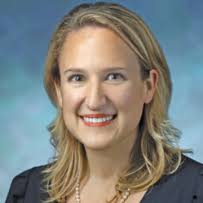 Rebecca L. Stone, M.D., M.S.
Rebecca L. Stone, M.D., M.S.
Associate Professor , Johns Hopkins School of MedicineDr. Rebecca Stone is an associate professor in the Johns Hopkins Medicine Department of Gynecology and Obstetrics. Her area of clinical expertise is gynecologic cancers, including cervical, uterine, vulvar and ovarian cancer, as well as gestational trophoblastic disease.
Dr. Stone received her undergraduate degree in biology from the University of Virginia. She earned her medical degree from the University of Virginia School of Medicine, where she subsequently completed her residency in obstetrics and gynecology. Dr. Stone performed a four-year gynecologic oncology fellowship at the University of Texas MD Anderson Cancer Center. She also earned a master’s degree in cancer biology from the University of Texas in 2010.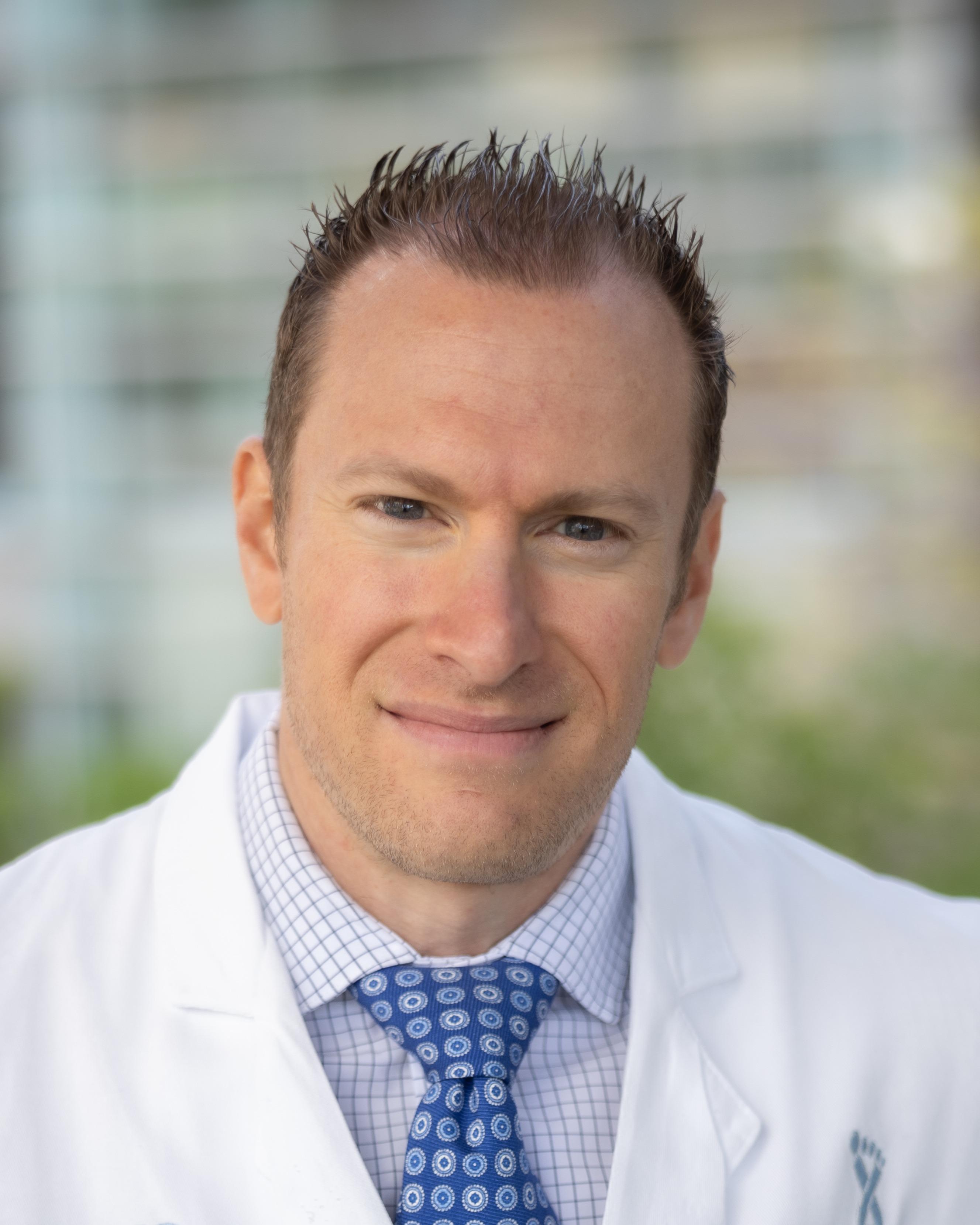 Joshua F Zeidner, M.D.
Joshua F Zeidner, M.D.
Associate Professor of Medicine, University of North Carolina, Lineberger Comprehensive Cancer Center
Joshua_Zeidner@med.unc.eduDr. Joshua Zeidner is an Associate Professor of Medicine at the University of North Carolina School of Medicine, Lineberger Comprehensive Cancer Center, where he is the Section Chief of Leukemia Research, Associate Chief of Research within the Division of Hematology, and the inaugural Director of Clinical Cancer Research, Commercial Integration, at Lineberger Comprehensive Cancer Center. Dr. Zeidner earned his medical degree from New York Medical College and then underwent training in internal medicine and Oncology at Johns Hopkins. Dr. Zeidner’s research focuses on drug development, early phase clinical trials, and innovative therapeutic strategies in acute myeloid leukemia (AML) with a particular interest in the development of novel targeted therapeutic approaches such as menin inhibitors, immunotherapeutic approaches, and therapies targeted towards differentiation and apoptotic pathways. He has designed and developed multiple Phase I-II studies in AML and oversees a robust clinical research program in Leukemia at University of North Carolina.
